Films with theme "Films based on plays", sorted by revenue

Cabaret (1972)
, 2h4Directed by Bob Fosse
Origin USA
Genres Drama, Musical theatre, Musical, Romance
Themes Dance films, Films about writers, Films about music and musicians, Films about sexuality, Bisexuality-related films, LGBT-related films, Musical films, Films based on plays, Films based on musicals, LGBT-related films, LGBT-related film
Actors Liza Minnelli, Michael York, Joel Grey, Helmut Griem, Fritz Wepper, Marisa Berenson
In 1931 Berlin, young American Sally Bowles performs at the Kit Kat Klub. A new British arrival in the city, Brian Roberts, moves into the boarding house where Sally lives. A reserved academic and writer, Brian gives English lessons to earn a living while completing his doctorate. Sally tries seducing Brian and suspects he may be gay. Brian tells Sally that on three previous occasions he has tried to have physical relationships with women, all of which failed. They become friends, and Brian witnesses Sally's anarchic, bohemian life in the last days of the German Weimar Republic. Sally and Brian become lovers despite their earlier reservations; they conclude that his previous failures with women were because they were "the wrong three girls".

8 Women (2002)
, 1h51Directed by François Ozon
Origin France
Genres Thriller, Comedy, Comedy-drama, Musical theatre, Comedy thriller, Musical, Crime
Themes Films about families, L'action se déroule en une journée, Feminist films, Films about music and musicians, Christmas films, Films about sexuality, Théâtre, LGBT-related films, Musical films, Films based on plays, LGBT-related films, LGBT-related film, Lesbian-related films
Actors Danielle Darrieux, Isabelle Huppert, Catherine Deneuve, Emmanuelle Béart, Fanny Ardant, Virginie Ledoyen
The film is set in the 1950s in a large country residence as a family and its servants are preparing for Christmas. When the master of the house is discovered dead in his bed with a dagger in his back, it is presumed that the murderer must be one of the eight women in the house. Over the course of the investigation, each woman has a tale to tell and secrets to hide.
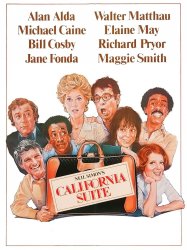
California Suite (1978)
, 1h38Directed by Herbert Ross
Origin USA
Genres Drama, Comedy, Comedy-drama, Romance
Themes Films about sexuality, LGBT-related films, Films based on plays, LGBT-related films, LGBT-related film
Actors Maggie Smith, Alan Alda, Jane Fonda, Walter Matthau, Bill Cosby, Elaine May
In Visitors from New York, Hannah Warren is a Manhattan workaholic who flies to Los Angeles to retrieve her teenaged daughter Jenny after she leaves home to live with her successful screenwriter father Bill. The bickering divorced couple is forced to decide what living arrangements are best for the girl.
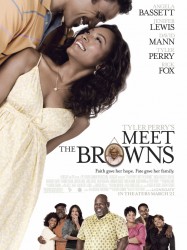
Meet the Browns (2008)
, 1h48Directed by Tyler Perry
Origin USA
Genres Drama, Comedy, Comedy-drama, Romance
Themes Films about families, Films based on plays
Actors Tyler Perry, Angela Bassett, Lance Gross, David Mann, Tamela Mann, Lamman Rucker
Brenda (Angela Bassett) is a single Chicago mother of three who has been struggling for years to keep her kids off of the streets. Suddenly let go from her job with no warning to speak of, the eternally optimistic mother begins to experience a suffocating sense of hopelessness for the very first time in her life. When Brenda receives a death notice claiming that the father she has never met has died, she quickly gathers up the kids and sets out for Georgia to attend the funeral. Upon arriving in the Deep South, the once fretful mother is pleasantly surprised to discover that there is a whole side of the family she never knew existed. A crass but good-natured clan that welcomes Brenda and her children with open arms, the Browns' lazy summer afternoons and frequent trips to the county fair offer a much-needed contrast to the stress of surviving in inner city Chicago.

The Lady in the Van (2015)
, 1h44Directed by Nicholas Hytner
Origin United-kingdom
Genres Drama, Comedy, Comedy-drama
Themes Films based on plays
Actors Maggie Smith, Alex Jennings, Frances de la Tour, Gwen Taylor, Dominic Cooper, James Corden
The Lady in the Van tells the true story of Alan Bennett's strained friendship with Miss Mary Shepherd, an eccentric house-less woman whom Bennett befriended in the 1970s before allowing her to temporarily park her Bedford van in the driveway of his Camden home. She stayed there for 15 years.
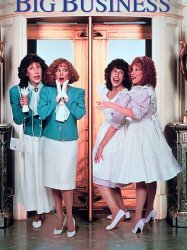
Big Business (1988)
, 1h37Directed by Jim Abrahams
Origin USA
Genres Comedy
Themes Films about families, Feminist films, Political films, Films based on plays, Films based on works by William Shakespeare, Buddy films
Actors Bette Midler, Lily Tomlin, Fred Ward, Barry Primus, Michele Placido, Seth Green
Sometime in the late 1940s, wealthy businessman Hunt Shelton and his heavily pregnant wife get lost in the middle of West Virginia looking for some friends' summer house when Mrs. Shelton goes into labor. They end up going to the Jupiter Hollow Hospital but the doctor will not check them in because it is exclusively for employees of Hollowmade, the local furniture maker. Mr. Shelton buys the company on the spot. The Ratliffs, an impoverished couple, arrive moments later with Mrs. Ratliff also in labor. Both women give birth to twin girls. The doctor tends both births at the same time, and the elderly nurse gets confused and mixes the babies. Mr. Ratliff overhears the Sheltons deciding to name their daughters Rose and Sadie, and suggests the same names to his wife.
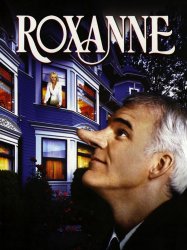
Roxanne (1987)
, 1h47Directed by Fred Schepisi
Origin USA
Genres Comedy, Romantic comedy, Romance
Themes Théâtre, Films about the labor movement, Films based on plays, Disaster films
Actors Steve Martin, Daryl Hannah, Rick Rossovich, Shelley Duvall, John Kapelos, Damon Wayans
C.D. "Charlie" Bales (Steve Martin), the fire chief of a small American ski town in Washington, is intelligent, humorous, charismatic, athletic and skilled. He is close to many in town, especially his godsister, Dixie (Shelley Duvall), who owns the town diner and several rental homes. He becomes immediately attracted to beautiful newcomer Roxanne Kowalski (Daryl Hannah), an astronomy student in town for the summer searching for a new comet. She adores Bales, but only as a friend, preferring Chris (Rick Rossovich), a handsome but dim fireman who has just joined Bales's unit to help turn it around. Bales is sensitive about his large nose, which many in town have learned to not mention. He is unable to have it surgically altered because of a dangerous allergy to anesthetics.

Thoroughly Modern Millie (1967)
, 2h18Directed by George Roy Hill
Origin USA
Genres Comedy, Romantic comedy, Musical, Romance
Themes Musical films, Films based on plays
Actors Julie Andrews, James Fox, Mary Tyler Moore, John Gavin, Carol Channing, Beatrice Lillie
In New York City in 1922, flapper Millie Dillmount (Julie Andrews) is determined to find work as a stenographer to a wealthy businessman and then marry him – a "thoroughly modern" goal. Millie befriends the sweet yet naive Miss Dorothy Brown (Mary Tyler Moore) as the latter checks into the Priscilla Hotel. When house mother Mrs. Meers (Beatrice Lillie) learns Miss Dorothy is an orphan, she remarks, "Sad to be all alone in the world." Unbeknown to Millie, the woman is selling her tenants into white slavery, and those without family or close friends are her primary targets.

Judy (2019)
, 1h58Origin USA
Genres Drama, Biography, Historical, Musical
Themes Théâtre, Films based on plays, Films based on musicals
Actors Renée Zellweger, Finn Wittrock, Jessie Buckley, Rufus Sewell, Michael Gambon, Richard Cordery
À la fin des années 1960, la star du Magicien d’Oz Judy Garland s’apprête à donner une série de concerts à Londres. Mais sa voix s’est fragilisée au fil du temps et Judy souffre, fragilisée par une vie entièrement consacrée à Hollywood et à sa carrière.

Romeo and Juliet (1968)
, 2h18Directed by Franco Zeffirelli
Origin Italie
Genres Drama, Romance
Themes Films about sexuality, Films about suicide, Théâtre, Erotic films, Romeo and Juliet, Films based on plays, Films based on works by William Shakespeare
Actors Leonard Whiting, Olivia Hussey, Milo O'Shea, John McEnery, Robert Stephens, Michael York
In Verona, Italy, the longstanding feud between the Montague and the Capulet clans breaks out in a street brawl, broken up by the Prince of the city. The same night, two teenagers of the two families — Romeo (Montague) and Juliet (Capulet) — meet at a Capulet feast and become deeply infatuated. Later, Romeo stumbles into the secluded garden under Juliet's bedroom balcony and the two exchange impassioned pledges. They are soon secretly married by Romeo's confessor and father figure, Friar Laurence, with the assistance of Juliet's nursemaid. Unfortunately, another street duel breaks out between Juliet's first cousin Tybalt and Romeo's best friend Mercutio when Tybalt insults Romeo. Since Tybalt is Juliet's cousin and Romeo has just been married to Juliet, he sees Tybalt as family and refuses to fight him, leading Mercutio to be a loyal friend and fight for him. This leads to Mercutio's death. Romeo retaliates by fighting Tybalt and killing him, and is punished by the Prince with banishment instead of the death penalty. Romeo, however, sees his banishment as worse than death, as Verona is the only home he has known and does not want to be pulled away from Juliet. Friar Laurence eventually convinces Romeo that he is very lucky and should be thankful for what he has. Romeo and Juliet secretly spend their wedding night together and consummate their marriage.

Little Shop of Horrors (1986)
, 1h34Directed by Frank Oz
Origin USA
Genres Science fiction, Comedy, Horror comedy, Musical theatre, Horror, Musical, Comic science fiction
Themes Medical-themed films, Films about music and musicians, Théâtre, Comedy science fiction films, Musical films, Films based on plays, Films based on musicals, Comedy horror films, Mise en scène d'une plante
Actors Rick Moranis, Ellen Greene, Vincent Gardenia, Steve Martin, James Belushi, Levi Stubbs
In September 1963, Seymour Krelborn (Rick Moranis) and his colleague, Audrey (Ellen Greene), work at Mushnik's Flower Shop, lamenting they cannot escape the slums of New York City, living in a run-down, beat up neighborhood referred to as "Skid Row." Struggling from a lack of customers, Mr. Mushnik (Vincent Gardenia) prompts to close the store, only for Audrey to suggest displaying an unusual plant Seymour owns. Immediately attracting a customer, Seymour explains he bought the plant, which he dubbed "Audrey II", from a Chinese flower shop during a solar eclipse. Attracting business to Mushnik's shop, the plant soon starts dying, worrying Seymour. Accidentally pricking his finger, he then discovers Audrey II needs human blood to thrive.

About Last Night... (1986)
, 1h49Directed by Edward Zwick
Origin USA
Genres Drama, Comedy, Comedy-drama, Romantic comedy, Romance
Themes Théâtre, Films based on plays
Actors Rob Lowe, Demi Moore, James Belushi, Elizabeth Perkins, George DiCenzo, Michael Alldredge
Danny and Bernie are two single men who live in Chicago. When Danny meets Debbie at Mother Malone's ("Mother's"), a bar in the Chicago Gold Coast, the two start a relationship from a one-night stand. The film follows the couple for the first year of their relationship: their meeting after a softball game, her moving in with him, mutual friction at Thanksgiving, their breakup on New Year's Eve, his apology and declaration of love on St. Patrick's Day, and their reconciliation at a softball game.
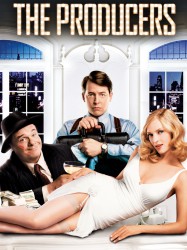
The Producers (2005)
, 2h14Origin USA
Genres Comedy, Musical
Themes Films about sexuality, Théâtre, LGBT-related films, Musical films, Political films, Films based on plays, Films based on musicals, LGBT-related films, LGBT-related film
Actors Nathan Lane, Matthew Broderick, Uma Thurman, Will Ferrell, Gary Beach, Roger Bart
Following the flop of theatre musical "Funny Boy" (based on William Shakespeare's Hamlet) ("Opening Night"), the show's washed-up producer, Max Bialystock, hires the neurotic Leo Bloom as his accountant. While studying Max's books, Leo notes that, since a flop is expected to lose money, the IRS won't investigate the finances of failed productions. Leo then jests that, by selling an excess of shares and embezzling the funds, a flop could generate up to $2 million. Deciding to enact the plan, Max asks for Leo's help with the scheme, only for the latter to refuse ("We Can Do It").

For Colored Girls (2010)
, 2h13Directed by Tyler Perry
Origin USA
Genres Drama, Romance
Themes Pregnancy films, Films about sexuality, LGBT-related films, Films based on plays, LGBT-related films, LGBT-related film
Actors Janet Jackson, Phylicia Rashād, Loretta Devine, Thandie Newton, Kimberly Elise, Anika Noni Rose
Each woman is represented by a color: Jo Bradmore represents red, Tangie Adrose represents orange, Yasmine represents yellow, Juanita Sims represents green, Kelly Watkins represents blue, Nyla Adrose represents purple, and Crystal Wallace represents brown. Additionally, the characters of Alice Adrose, who represents white, and Gilda, who does not represent a color, were made specifically for the film.
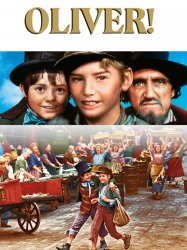
Oliver! (1968)
, 2h33Directed by Carol Reed
Origin United-kingdom
Genres Drama, Musical theatre, Musical
Themes Dance films, Films about children, Films about music and musicians, Théâtre, L'enfance marginalisée, Musical films, Films based on plays, Films based on musicals
Actors Mark Lester, Ron Moody, Shani Wallis, Oliver Reed, Jack Wild, Harry Secombe
A workhouse in Dunstable, England is visited by the wealthy governors who fund it. While a sumptuous banquet is held for them, the barefoot orphan boys who work there are being served their daily gruel. They dream of enjoying the same "Food, Glorious Food" as their masters. While eating, some boys draw straws to see who will ask for more to eat, and the job falls to a boy named Oliver Twist. He goes up to Bumble and Widow Corney, who run the workhouse and serve the gruel, and asks for more. Enraged, Bumble takes Oliver to the governors to see what to do with him ("Oliver!"). A decision is made to have Oliver sold into service. Bumble parades Oliver through the snow, trying to sell him to the highest bidder ("Boy for Sale"). Oliver is sold to an undertaker named Mr. Sowerberry, who intends to use him as a mourner for children's funerals. After his first funeral, Noah Claypole, Sowerberry's apprentice, insults Oliver's mother. Oliver attacks Noah in fury and Sowerberry forces him into a coffin while Noah fetches Bumble. Oliver is too angry to be intimidated by Bumble, who places the blame on not keeping Oliver on a diet of gruel, instead of meat, which made him strong. Oliver is thrown into the cellar as further punishment. Alone in the dark with a roomful of empty coffins, Oliver wonders ("Where is Love?"). While clutching the window grate, Oliver pushes it open and escapes.
 Connection
Connection